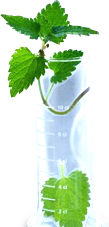



Author(s): Sadiya noor ul basar*, Seema Rani, Roohi Zaman
World health organization (WHO) has recognized the effectiveness of traditional system of medicine and its safety. According to WHO report, over 80% of the world population relies on traditional medicine largely plant based for their primary healthcare needs. Stability testing of herbal products is a challenging task, because the entire herb or herbal product is regarded as the active substance, regardless of whether constituents with defined therapeutic activity are known. The objective of a stability testing is to provide evidence on how the quality of the herbal products varies with the time under the influence of environmental factors such as temperature, light, oxygen, moisture, other ingredient or excipients in the dosage form, particle size of drug, microbial contamination, trace metal contamination, leaching from the container, etc. and to establish a recommended storage condition, retest period and shelf-life. Unani system of medicine employs single drugs, simple preparations and compound preparations (using herbs, minerals and animal products in one and the same medicine) so the task of evolving standards and shelf life is enormous. There is no scientific ground, whatsoever; to fall back and as a composite strategy had to be evolved. Therefore evaluation of the parameters based upon chemical, physical, microbiological, therapeutic and toxicological studies can serve as an important tool in stability studies.